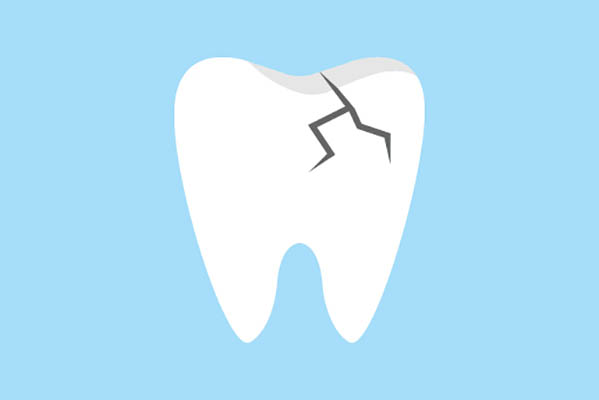Understanding Dental Crowns Versus Veneers

Dental crowns and veneers can both restore the function and appearance of damaged teeth. That damage can take the form of decay, discoloration, chips or cracks, or a crooked appearance. The main difference is that a crown goes over the whole tooth, whereas a veneer only sits on the front. Beyond that, there are pros and cons to each method that you and your dentist can discuss.
Understanding the treatment options
While both veneers and crowns can play an important role in smile restoration, the two procedures are quite different in many ways. Understanding what to expect can help guide patients as they make a plan to repair or enhance their smiles.
Dental crowns
A crown covers the entire tooth. It is about 2 millimeters thick and can be made out of porcelain, metal, or porcelain fused to a metal (PFM) alloy. If you get a porcelain or PFM crown, it will be color-matched to the surrounding teeth to look natural. Metal crowns are usually used for back teeth, where the difference in appearance is not as noticeable.
Because of the fuller coverage of a crown, your affected tooth will be ground down or filed more than it would be with a veneer. After the dentist prepares the tooth in this way, you will have a mold or scan of the tooth taken. If your dental office has a way to create your crown on site, you can get your crown in one appointment. Otherwise, your dentist will send your tooth impression to a lab, where your crown will be made. You will get a temporary crown while you wait for the permanent one to come back from the lab.
When your permanent crown arrives, your dentist will remove the temporary one and place the new crown over the tooth.
Dental veneers
Veneers are about half the thickness of dental crowns. They also come in a variety of materials, including porcelain. Rather than covering a tooth in its entirety, a veneer is bonded to the front of a tooth.
If your dentist determines that you need a veneer rather than a crown, your affected tooth should not need quite as much preparation. However, after that, the process is similar to that of a crown. You will have a mold or other impression taken of the tooth, and an on-site or off-site lab will use the mold to create a veneer. If this cannot be done in one day, your dentist may place a temporary veneer on your tooth.
Once your permanent veneer is ready, your dentist will bond it to the front of your affected tooth and seal the bond with ultraviolet light. With both dental crowns and veneers, you may need adjustments if there is movement or changes to your bite.
Choosing between veneers and dental crowns
There are many things to consider when choosing the right type of smile restoration. It is important to note that both of these options should be considered permanent because they require the removal of natural tooth material that will not grow back on its own. Once you have a crown or a veneer applied to your teeth, you will always need one as long as that tooth remains in your mouth.
In general, veneers are used for teeth toward the front of the mouth because they are not durable enough to withstand the biting and grinding forces used on molars and even premolars. Crowns are typically used to repair these types of teeth toward the back of the mouth.
Recovery, home care, and longevity are similar for both procedures because they require comparable techniques and materials. Regular brushing and flossing are essential and chewing on hard or foreign objects can damage the treatments. With proper care, both can last for decades, although many people can expect to need a replacement every 10 to 15 years.
Conclusion
Whether you need a crown or a veneer depends on a variety of factors, including the extent of your tooth damage or decay and whether or not your intent is mostly functional or more cosmetic. Your dentist will help determine which is right for you and discuss all the options with you before beginning the work.
The procedures themselves are relatively similar, and they are very routine for your dentist — so you should not worry or put off necessary work due to fear. Your smile is worth the effort.
Request an appointment here: https://www.myddsny.com or call Inna Goykman-Amir DDS at (718) 416-6364 for an appointment in our Brooklyn office.
Check out what others are saying about our dental services on Yelp: Dental Crowns and Dental Bridges in Brooklyn, NY.
Related Posts
A porcelain crown is a versatile dental restoration that protects and preserves damaged, weakened, or decayed natural teeth. By encasing the visible portion of a tooth, a porcelain crown restores its function, strength, and appearance. This treatment effectively saves a natural tooth from further damage, ensuring long-term oral health and maintaining the aesthetics of your…
Dental crowns can treat many different concerns. They can repair damaged teeth, attach to dental implants for teeth replacement, and more. Two of the main types of dental crowns are metal and porcelain crowns. Both are effective solutions, but one may be preferable to another depending on the intended purpose.Your dentist should help you decide…
Dentists use dental crowns to preserve the integrity of the remaining natural dental structure. There are cases when cavities keep getting worse. Lack of routine dental checkups and poor dental care can lead to deeper cavities. This often leads to larger fillings with each dental check. If you want to know how dental crowns can…
A dentist may advise their patients to get a dental crown to replace old or worn-out fillings. A dental filling is often used to treat a small to medium-sized region of dental decay. Even though fillings are designed to last for a long time, they might fail or fall out for various reasons, such as…


